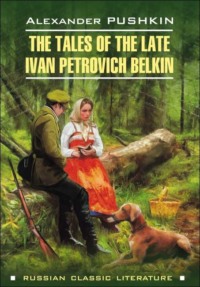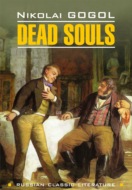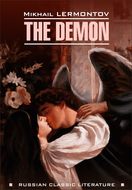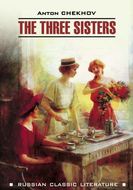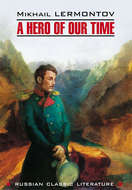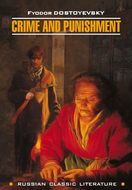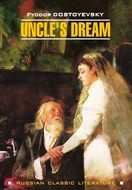Loe raamatut: «Повести Белкина / The Tales of the Late Ivan Petrovich Belkin»
© КАРО, 2016
Все права защищены
MME. PROSTAKOVA: My dear sir, from his childhood on, he has been fond of stories.
SKOTININ: Mitrofan takes after me.
The Minor1
Editor’s Foreword
Having undertaken to arrange the publication of the Tales of I.P. Belkin, which are herewith offered to the public, we wished to add to these a biography, however brief, of the late author, and thereby to satisfy, at least partly, the just curiosity of lovers of our native letters. To that end we addressed ourselves to Marya Alexeyevna Trafilina, the heiress of Ivan Petrovich Belkin and his nearest of kin; but unfortunately it was impossible for her to furnish any intelligence concerning him, inasmuch as she had never known the deceased. She advised us to confer on the matter with an esteemed person, who had been a friend of Ivan Petrovich. We followed this advice, and our letter elicited the following answer. We present it here without any changes or explanatory notes, as a precious testimony to a noble manner of thinking and a touching friendship, and at the same time as a sufficient biographical account.
– —, Esq.
My dear sir!
On the twenty-third of this month I had the honor of receiving your most esteemed letter of the fifteenth, in which you express your desire to secure detailed information regarding the dates of birth and death, the career in the service, the domestic circumstances, as well as the occupations and the character of the late Ivan Petrovich Belkin, my late good friend and neighbor. I take great pleasure in complying with your request, and I am here setting forth, my dear sir, all that I can recall of our talks and my own observations.
Ivan Petrovich Belkin was born of honorable and noble parents in the year 1798 in the village of Goryukhino. His late father, second-major Piotr Ivanovich Belkin, was married to Pelageya Gavrilovna, née2 Trafilina. He was a man of moderate means, modest habits, very shrewd in business matters. Their son received his elementary education from a village beadle. To this esteemed man he owed, it would seem, his interest in reading and in Russian letters. In 1815 he entered the service in a Jaeger regiment of the infantry (I do not remember the number), in which he remained until the year 1823. The deaths of his parents, which occurred almost simultaneously, caused him to retire and settle at Goryukhino, his family estate.
Having undertaken the management of the estate, Ivan Petrovich, because of his inexperience and soft-heartedness, soon began to neglect his property, and relaxed the strict regime established by his late parent. Having dismissed the punctual and efficient steward3 with whom his peasants (as is their habit) were dissatisfied, he placed the management of the village in the hands of his old housekeeper, who had acquired his confidence through her ability to tell stories. This stupid old woman could not tell a twenty-five-ruble from a fifty-ruble note. She was godmother to the children of all the peasants, and so the latter were not in fear of her. The steward they had elected indulged them to such an extent, at the same time defrauding the master, that Ivan Petrovich was forced to abolish the corvée4 and introduce a very moderate quit-rent. Even then, the peasants, taking advantage of his weakness, obtained a special privilege the first year, and during the next two years paid more than two-thirds of the quit-rent in nuts, huckleberries, and the like; and even so they were in arrears.
Having been a friend of Ivan Petrovich’s late parent, I deemed it my duty to offer my advice to the son, too, and repeatedly I volunteered to restore the order he had allowed to fall into decay. To that end, having come to see him one day, I demanded the account books, summoned the rascally steward, and, in the presence of Ivan Petrovich, started examining them. At first the young master followed me with all possible attention and diligence, but after we had ascertained from the accounts that in the last two years the number of peasants had increased, while the quantity of fowls and cattle had considerably diminished, Ivan Petrovich was satisfied with this bit of information, and no longer listened to me, and at the very moment when my investigation and strict questioning had reduced the thievish steward to extreme embarrassment, and indeed forced him to complete silence, to my extreme mortification I heard Ivan Petrovich snoring loudly in his chair. Thenceforward I ceased to intervene in his business affairs and entrusted them (as he did himself) to the care of the Almighty.
This, however, did not injure our friendly relations to any degree; for, commiserating as I did his weakness and the ruinous negligence common to all our young noblemen, I sincerely loved Ivan Petrovich. It was indeed impossible not to like a young man so gentle and honorable. On his part, Ivan Petrovich showed respect to my years and was cordially attached to me. Until his very end he saw me nearly every day, prizing my simple conversation, although we did not resemble each other in habits, or manner of thinking, or character.
Ivan Petrovich lived in the most moderate fashion, and avoided excesses of any sort. I never chanced to see him tipsy (which in our parts may be accounted an unheard-of miracle); he had a strong leaning toward the female sex, but he was truly as bashful as a girl.5
Besides the tales which you are pleased to mention in your letter, Ivan Petrovich left many manuscripts, some of which are in my hands, the rest having been put by his housekeeper to various domestic uses. Thus, last winter all the windows in her own wing were pasted over with the first part of the novel which he did not complete. The above-mentioned tales were, it seems, his first effort. As Ivan Petrovich said, they are for the most part true stories, which he had heard from various persons.6
But the names in them were almost all his own invention, while the names of the villages and hamlets were taken from our neighborhood, for which reason my village too is mentioned somewhere. This happened not because of any malicious design, but solely through lack of imagination.
In the autumn of 1828, Ivan Petrovich came down with a catarrhal fever, which took a bad turn, so that he died, in spite of the tireless efforts of our district doctor, a man very skillful, particularly in the treatment of inveterate diseases, such as bunions and the like. He died in my arms in the thirtieth year of his life, and was buried near his deceased parents in the churchyard of the village of Goryukhino.
Ivan Petrovich was of middle height, had gray eyes, blonde hair, a straight nose; his complexion was fair and his face lean.
Here, my dear sir, is all I can recall regarding the manner of life, the occupations, the character and the appearance of my late neighbor and friend. In case you should think fit to make some use of my letter, I respectfully beg you not to mention my name; for much as I esteem and admire authors, I deem it superfluous, and indeed at my age unseemly, to enter their ranks.
With every expression of sincere esteem, believe me, etc.
November 16, 1830
The village of Nenaradovo
Considering it our duty to respect the wish of our author’s esteemed friend, we signalize our deepest gratitude to him for the intelligence furnished by him, and trust that the public will appreciate his candor and good nature.
A.P.
The Shot
We fought a duel.
Baratynsky7
I swore to shoot him, as the code of dueling allows (it was my turn to fire)
Evening at Camp
I
We were stationed in the town of N —. The life of an officer in the army is well known. In the morning, drill and the riding school; dinner with the Colonel or at a Jewish restaurant; in the evening, punch and cards. In N – there was not one open house, or a single marriageable girl. We used to meet in each other’s rooms, where all we saw were men in uniform.
One civilian only was admitted into our society. He was about thirty-five years of age, and therefore we looked upon him as an old fellow. His experience gave him great advantage over us, and his habitual sullenness, stern disposition, and caustic tongue produced a deep impression upon our young minds. Some mystery surrounded his existence; he had the appearance of a Russian, although his name was a foreign one. He had formerly served in the Hussars8, and with distinction. Nobody knew the cause that had induced him to retire from the service and settle in a wretched town, where he lived poorly and, at the same time, extravagantly. He always went on foot, and constantly wore a shabby black overcoat, but the officers of our regiment were ever welcome at his table. His dinners, it is true, never consisted of more than two or three dishes, prepared by a retired soldier, but the champagne flowed like water. Nobody knew what his circumstances were, or what his income was, and nobody dared to question him about them. He had a collection of books, chiefly works on military matters and novels. He willingly lent them to us to read, and never asked for their return; on the other hand, he never returned to the owner the books that were lent to him. His principal amusement was shooting with a pistol. The walls of his room were riddled with bullets, and were as full of holes as a honeycomb. A rich collection of pistols was the only luxury in the humble cottage where he lived. The skill which he had acquired with his favorite weapon was simply incredible; and if he had offered to shoot a pear off somebody’s forage cap, not a man in our regiment would have hesitated to expose his head to the bullet.
Our conversation often turned upon duels. Silvio – so I will call him – never joined in it. When asked if he had ever fought, he drily replied that he had; but he entered into no particulars, and it was evident that such questions were not to his liking. We imagined that he had upon his conscience the memory of some unhappy victim of his terrible skill. It never entered into the head of any of us to suspect him of anything like cowardice. There are persons whose mere look is sufficient to repel such suspicions. But an unexpected incident occurred which astounded us all.
One day, about ten of our officers dined with Silvio. They drank as usual, that is to say, a great deal. After dinner we asked our host to hold the bank for a game at faro9. For a long time he refused, as he hardly ever played, but at last he ordered cards to be brought, placed half a hundred gold coins upon the table, and sat down to deal. We took our places around him, and the game began. It was Silvio’s custom to preserve complete silence when playing. He never argued, and never entered into explanations. If the punter made a mistake in calculating, he immediately paid him the difference or noted down the surplus. We were acquainted with this habit of his, and we always allowed him to have his own way; but among us on this occasion was an officer who had only recently been transferred to our regiment. During the course of the game, this officer absently scored one point too many. Silvio took the chalk and noted down the correct account, according to his usual custom. The officers, thinking that he had made a mistake, began to enter into explanations. Silvio continued dealing in silence. The officer, losing patience, took the brush and rubbed out what he considered an error. Silvio took the chalk and corrected the score again. The officer, heated with wine, play, and the laughter of his comrades, considered himself grossly insulted, and in his rage he seized a brass candlestick from the table, and hurled it at Silvio, who barely succeeded in avoiding the missile. We were filled with consternation. Silvio rose, white with rage, and with gleaming eyes, said: “My dear sir, have the goodness to withdraw, and thank God that this has happened in my house.”
None of us entertained the slightest doubt as to what the result would be, and we already looked upon our new comrade as a dead man. The officer withdrew, saying that he was ready to answer for his offense in whatever way the banker liked. The play went on for a few minutes longer, but feeling that our host was too overwrought to care for the game, we withdrew one after the other, and repaired to our respective quarters, after having exchanged a few words upon the probability of there soon being a vacancy in the regiment.
The next day, at the riding school, we were already asking each other if the poor lieutenant was still alive, when he himself appeared among us. We put the same question to him, and he replied that he had not yet heard from Silvio. This astonished us. We went to Silvio’s house and found him in the courtyard shooting bullet after bullet into an ace pasted upon the gate. He received us as usual, but did not utter a word about the event of the previous evening. Three days passed, and the lieutenant was still alive. We asked each other in astonishment: “Can it be possible that Silvio is not going to fight?”
Silvio did not fight. He was satisfied with a very lame explanation, and made peace with his assailant.
This lowered him very much in the opinion of all our young fellows. Want of courage is the last thing to be pardoned by young men, who usually look upon bravery as the chief of all human virtues, and the excuse for every possible fault. But, by degrees, everything was forgotten, and Silvio regained his former influence.
I alone could not approach him on the old footing. Being endowed by nature with a romantic imagination, I had become attached more than all the others to the man whose life was an enigma, and who seemed to me the hero of some mysterious tale. He was fond of me; at least, with me alone did he drop his customary sarcastic tone, and converse on different subjects in a simple and unusually agreeable manner. But after this unlucky evening, the thought that his honor had been tarnished, and that the stain had been allowed to remain upon it through his own fault, was ever present in my mind, and prevented me from treating him as before. I was ashamed to look at him. Silvio was too intelligent and experienced not to observe this and guess the cause of it. This seemed to vex him; at least, I observed once or twice a desire on his part to enter into an explanation with me, but I avoided such opportunities, and Silvio gave up the attempt. From that time forward I saw him only in the presence of my comrades, and our former confidential conversations came to an end.
Those who live amidst the excitements of the capital have no idea of the many experiences familiar to the inhabitants of villages and small towns, as, for instance, waiting for the arrival of the post. On Tuesdays and Fridays our regimental bureau used to be filled with officers: some expecting money, some letters, and others newspapers. The packets were usually opened on the spot, items of news were communicated from one to another, and the bureau used to present a very animated picture. Silvio used to have his letters addressed to our regiment, and he was generally there to receive them.
One day he received a letter, the seal of which he broke with a look of the greatest impatience. As he read the contents, his eyes sparkled. The officers, each occupied with his own mail, did not observe anything.
“Gentlemen,” said Silvio, “circumstances demand my immediate departure; I leave tonight. I hope that you will not refuse to dine with me for the last time. I shall expect you, too,” he added, turning toward me. “I shall expect you without fail.”
With these words he hastily departed, and we, after agreeing to meet at Silvio’s, dispersed to our various quarters.
I arrived at Silvio’s house at the appointed time, and found nearly the whole regiment there. All his belongings were already packed; nothing remained but the bare, bullet-riddled walls. We sat down to table. Our host was in an excellent humor, and his gaiety was quickly communicated to the rest. Corks popped every moment, glasses foamed incessantly, and, with the utmost warmth, we wished our departing friend a pleasant journey and every happiness. When we rose from the table it was already late in the evening. After having wished everybody good-bye, Silvio took me by the hand and detained me just at the moment when I was preparing to depart.
“I want to speak to you,” he said in a low voice.
I stayed on.
The guests had departed, and we two were left alone. Sitting down opposite each other, we silently lit our pipes. Silvio seemed greatly troubled; not a trace remained of his former feverish gaiety. The intense pallor of his face, his sparkling eyes, and the thick smoke issuing from his mouth, gave him a truly diabolical appearance. Several minutes elapsed, and then Silvio broke the silence.
“Perhaps we shall never see each other again,” said he; “before we part, I should like to explain something to you. You may have observed that I care very little for the opinion of other people, but I like you, and I feel that it would be painful to me to leave you with a wrong impression on your mind.”
He paused, and began to refill his pipe. I sat gazing silently at the floor.
“You thought it strange,” he continued, “that I did not demand satisfaction from that drunken idiot R —. You will admit, however, that since I had the choice of weapons, his life was in my hands, while my own was in no great danger. I could ascribe my forbearance to generosity alone, but I will not tell a lie. If I could have chastised R – without the least risk to my own life, I should never have pardoned him.”
I looked at Silvio with astonishment. Such a confession completely astounded me. Silvio continued: “Exactly so: I have no right to expose myself to death. Six years ago I received a slap in the face, and my enemy still lives.”
My curiosity was greatly excited.
“Did you not fight with him?” I asked. “Circumstances probably separated you.”
“I did fight with him,” replied Silvio: “and here is a souvenir of our duel.”
Silvio rose and took from a cardboard box a red cap with a gold tassel and galloon (what the French call a bonnet de police); he put it on – a bullet had passed through it about an inch above the forehead.
“You know,” continued Silvio, “that I served in one of the Hussar regiments. My character is well known to you: I am accustomed to taking the lead. From my youth this has been my passion. In our time dissoluteness was the fashion, and I was the wildest man in the army. We used to boast of our drunkenness: I outdrank the famous B —,10 of whom D. D —11 has sung. In our regiment duels were constantly taking place, and in all of them I was either second or principal. My comrades adored me, while the regimental commanders, who were constantly being changed, looked upon me as a necessary evil.
“I was calmly, or rather boisterously enjoying my reputation, when a young man belonging to a wealthy and distinguished family – I will not mention his name – joined our regiment. Never in my life have I met with such a fortunate fellow! Imagine to yourself youth, wit, beauty, unbounded gaiety, the most reckless bravery, a famous name, untold wealth – imagine all these, and you can form some idea of the effect that he would be sure to produce among us. My supremacy was shaken. Dazzled by my reputation, he began to seek my friendship, but I received him coldly, and without the least regret he held aloof from me. I began to hate him. His success in the regiment and in the society of ladies brought me to the verge of despair. I began to seek a quarrel with him; to my epigrams he replied with epigrams which always seemed to me more spontaneous and more cutting than mine, and which were decidedly more amusing, for he joked while I fumed. At last, at a ball given by a Polish landed proprietor, seeing him the object of the attention of all the ladies, and especially the mistress of the house, with whom I was having a liaison12, I whispered some grossly insulting remark in his ear. He flamed up and gave me a slap in the face. We grasped our swords; the ladies fainted; we were separated; and that same night we set out to fight.
“The dawn was just breaking. I was standing at the appointed place with my three seconds. With indescribable impatience I awaited my opponent. The spring sun rose, and it was already growing hot. I saw him coming in the distance. He was on foot, in uniform, wearing his sword, and was accompanied by one second. We advanced to meet him. He approached, holding his cap filled with black cherries. The seconds measured twelve paces for us. I had to fire first, but my agitation was so great, that I could not depend upon the steadiness of my hand; and in order to give myself time to become calm, I ceded to him the first shot. My adversary would not agree to this. It was decided that we should cast lots. The first number fell to him, the constant favorite of fortune. He took aim, and his bullet went through my cap. It was now my turn. His life at last was in my hands; I looked at him eagerly, endeavoring to detect if only the faintest shadow of uneasiness. But he stood in front of my pistol, picking out the ripest cherries from his cap and spitting out the stones, which flew almost as far as my feet. His indifference enraged me beyond measure. ‘What is the use,’ thought I, ‘of depriving him of life, when he attaches no value whatever to it?’ A malicious thought flashed through my mind. I lowered my pistol.
“‘You don’t seem to be ready for death just at present,’ I said to him: ‘you wish to have your breakfast; I do not wish to hinder you.’
“‘You are not hindering me in the least,’ he replied. ‘Have the goodness to fire, or just as you please – you owe me a shot; I shall always be at your service.’
“I turned to the seconds, informing them that I had no intention of firing that day, and with that the duel came to an end.
“I resigned my commission and retired to this little place. Since then, not a day has passed that I have not thought of revenge. And now my hour has arrived.”
Silvio took from his pocket the letter that he had received that morning, and gave it to me to read. Someone (it seemed to be his business agent) wrote to him from Moscow, that a certain person was going to be married to a young and beautiful girl.
“You can guess,” said Silvio, “who the certain person is. I am going to Moscow. We shall see if he will look death in the face with as much indifference now, when he is on the eve of being married, as he did once when he was eating cherries!”
With these words, Silvio rose, threw his cap upon the floor, and began pacing up and down the room like a tiger in his cage. I had listened to him in silence; strange conflicting feelings agitated me.
The servant entered and announced that the horses were ready. Silvio grasped my hand tightly, and we embraced each other. He seated himself in the carriage, in which there were two suitcases, one containing his pistols, the other his effects. We said good-bye once more, and the horses galloped off.
Tasuta katkend on lõppenud.
